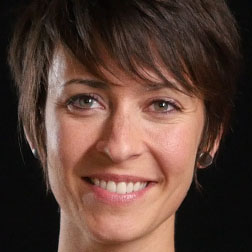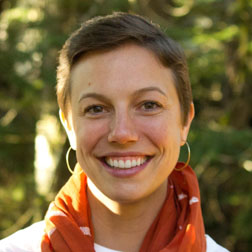I was in my mid-twenties when I made the conscious choice to find the answers to some very important questions. An unexpected pregnancy had thrown me into an existential crisis and forced me to come to terms with my life choices. It became clear that I needed to begin to make decisions from my own moral compass and intuition rather than following others’ ideas and beliefs about what was right or wrong. Locating that inner compass took time. It also took practice to cultivate its sustainability.
Adult developmental theorist Robert Kegan would say I was making the transition from a socialized mind to a self-authoring mind. This is another way to say I was moving away from a natural motivation to want to belong to a group and moving towards a stage of autonomy and sovereignty. Had I known this at the time, I might have shown myself more compassion and equanimity. I didn’t realize that it was normal and healthy to be growing up in this way. I also didn’t realize it’s a work most people never do—a type of freedom most don’t know exists.
Thirty years later, as an emerging leader in the field of human development, I’m devoted to secularizing spirituality and establishing it as a core tenet in creating the conditions for individuals to become self-authoring. My experience has led me to believe that creating the conditions for this type of personal whole-self growth to occur in an individual directly impacts the health and well being of any and every community that individual is a part of—whether the community is a family, village, nation, or corporation.
The trend in organizational development and corporate leadership training has been primarily focused on training leaders by developing them socially, emotionally, and psychologically. Exploring the spiritual orientation of leaders in relation to their whole self development is rarely integrated into a leadership training. At best, it is implicitly addressed through explorations of meaning-making systems. However, our world is complex, crowded, and volatile. Religion is still a major force of polarization and control on the planet. The human experience is being placed in a pressure cooker. To not bring the topic of spiritual integration into explorations of development is to dismiss the elephant in the room.
This elephant is not only integral to the development of our present and future leaders, but is integral to every individual’s self-authorship regardless of station, skin color, gender, or ancestry. Whole-self development is essential for all participants in any corporate system.
Personal development can no longer be solely focused on emotional, social, relational, psychological, and/or skills training. Personal development can no longer be reserved solely for the C suiters and upper management. Personal development is key to our survival as a species and spirituality must be woven into the fabric of our collective learning and applied to every human on the planet.
Let’s face it. We live in an increasingly diverse and interconnected world. Recent generations are seeing options and ways of being human that are different from their birth tribe, family, religion, or state of origin. It’s natural to wonder about different ways of being, as I did at twenty-two. But it’s also destabilizing to the system, the family, the corporation, the previous concept of self. As this trend of options increases, leaders/fathers/priests/CEOs will not be able to control or manipulate their subordinates. Case in point: the empowered and powerful young people of Parkland.
The solution to managing complexity, uncertainty, and volatility is not to get bigger, better, stronger leaders who can then impose their guru-complex onto the lost peasants of the corporate ladder. No! The best leaders of the future will be the ones who are willing to release their attachment to the vanity aspect of their role as leader for the good of the emergent system. They won’t be leading in the front with their back to those they lead. They will be watching their team members’ backs, assuring everyone is getting what they need to evolve for the better of the whole. They will surrender to the unknown with their fellows, whether they be behind the desk of a corner office or cleaning it after hours. Without a solid and true connection to deep meaning-making in the form of spirituality, every leader will fold in the face of death (read as change)—period—and will undoubtedly relapse to their known behaviors of control, power, and basic self-servingness.
This is a new age. And we need new ways.
I’m an educator by training and by passion. I suggest that we look back at some of the great educational thinkers for some guidance: Jean Piaget, A S Neill, Rudolph Steiner, and Maria Montessori, for example. Though their views have become crystalized in some places, and their perspectives were born from their contextual times and will not necessarily directly translate into present day, one staunchly relevant thing they all have in common is the understanding that the best way to educate and grow a human is by creating the conditions within which the human can wonder, learn, and thrive along the lines of their “natural” inclination, proclivities and virtues.
So let’s take this orientation and apply it to the intent of growing spiritually aligned, self-authoring, whole humans. Let’s foster environments where all individuals can find their way to becoming wholly themselves. What’s really striking about allowing this space and evolution for ourselves and one another is that it will ultimately serve the whole, in unimaginably escalating ways.
This I know for certain: when humans makes spiritual connections authentically for themselves, they become better additions to any system. With a true awakening to the Mystery of all that is, there comes a deep sense of awe for all life (and death) and a natural creative wonder where curiosity blossoms. With this comes a natural inclination to help, serve, create, play, and explore, and to live a beautiful and meaningful life—without one’s actions adversely impacting or taking away from another’s right to do the same.
However, it takes time to dig through the beliefs we carry that say otherwise and to source that genuine realization. We as elders, leaders, and educators must create the conditions that foster this possibility. Each individual’s healing and thriving will be the key to all-system survival. As companies and corporations look to meet challenges both internally and externally, personal whole-self development will be integral to a vibrant and alive team approach. Similarly, it will not be by training the self-proclaimed leaders of the world that will bring us safely into a new era. No. It will be by creating the conditions for all citizens to thrive, one spiritually aligned and self-authored self at a time.
Sarah Marshank is the founder of Selfistry, a system dedicated to mastering the art of being human, integrating Eastern philosophy and practices with modern psychology and neuro-somatic systems. She holds a Bachelor’s degree in Alternative Education and a Master’s Degree in History and Philosophy of Education. Sarah brings an educator’s expertise deeply informed by her mastery of spiritual principles birthed from a decade in retreat.



2 thoughts on “Whole-Self Development: Rethinking Corporate Culture”
Feeling deeply touched by this blog, perhaps more so than I’ve done in years when it comes to articles about leadership. There is such a deep resonance in reading this Sarah, also a wish to connect because I feel my leadership development work has often been so much about bringing the spiritual level into everyone’s awareness so the collective intelligence can be informed by this in the way people make decisions together. I’ve done this in some challenging places – but always on my own. So your blog also makes me aware that there are people like you and Rob around, and that you are connected and networked. I am looking for possibilities of collaboration, offering my skills, and contribute to this with colleagues who have this in common. So I thank you for your beautiful and heartfelt and above all clear words. Warm greetings, Romeck
Romeck,
Thank you for your thoughtful and heartful response. This edge between psychological development and spiritual development feels more and more like a threshold to me, as good folk like you bring forward the courage and clarity to gingerly cross over it. It’s certianly a frontier for all of us right now and the more we can support one another and collaborate where possible, the more fruitful our endeavors will be. I feel certain of this. So, thank you for reaching out. I will contact you privately via email to arrange a time to connect.
All the best,
Sarah